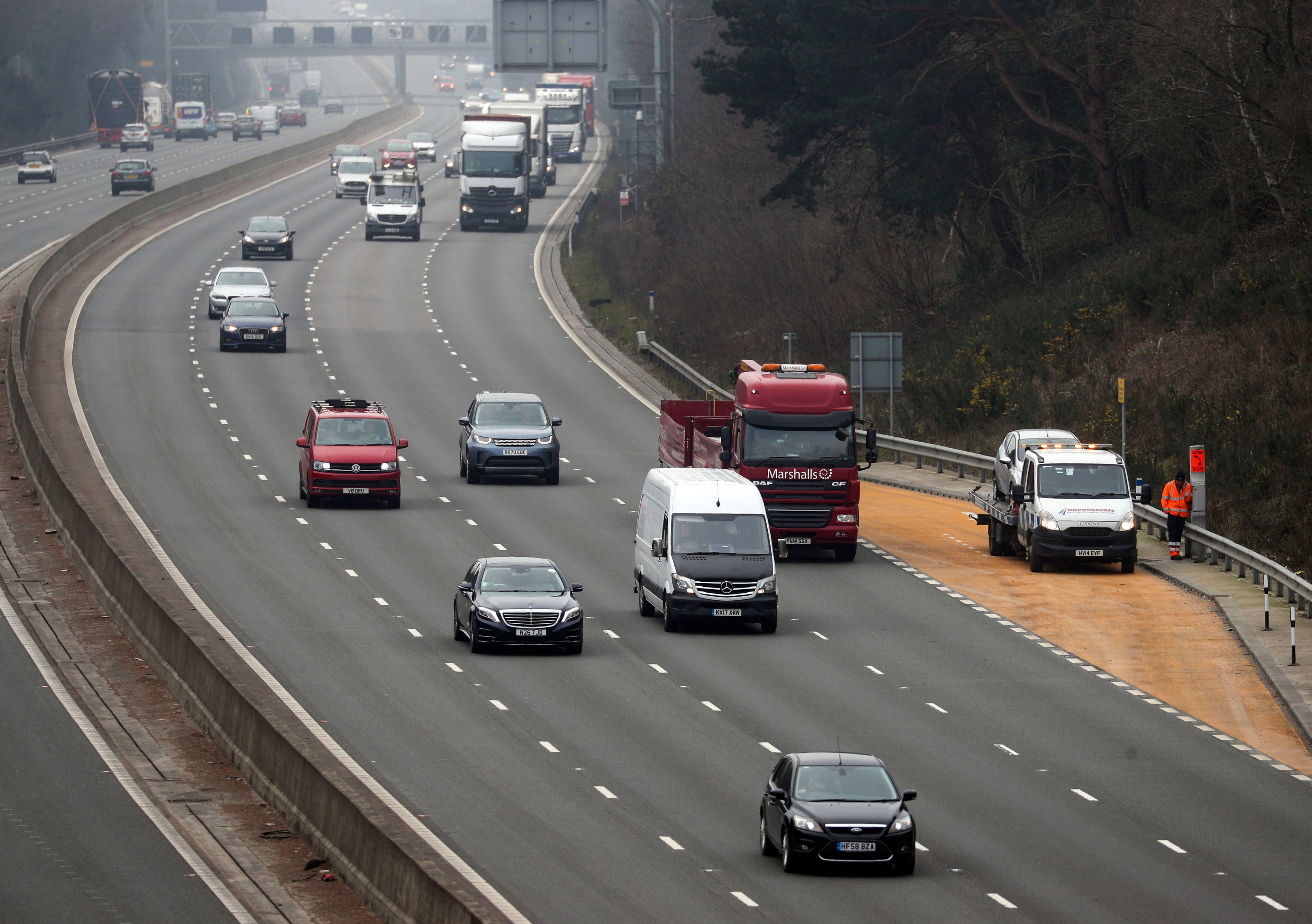Most drivers want hard shoulder back on smart motorways, poll finds
Nearly two thirds of people want to see hard shoulders reinstated to stretches of motorway where they have been scrapped to allow greater traffic flow, an RAC survey has found

The RAC has called on the government to consider reinstating hard shoulders on motorways where they have been scrapped to allow greater traffic flow after a poll found that two thirds of people want to see their return.
Allowing cars to drive through the stopping lane of some sections of motorway has been controversial since the creation of smart motorways more than a decade ago, which allow this in an effort to avoid traffic jams.
Although National Highways say that smart motorways, or all lane running (ALR) motorways, are at least as safe as traditional motorways, fatal crashes have occurred as a result of cars ploughing into stationary vehicles left without a hard shoulder.
In the years 2015 to 2019, 53 people are thought to have died on smart motorways, with at least four coroners citing the lack of hard shoulder playing a significant part in the road deaths they were investigating.
The RAC poll found that 62 per cent of people would like to see hard shoulders reinstated on smart motorways, while a similar proportion of people said that they do not believe measures such as variable speed limits adequately compensate for their loss.
Fewer than a quarter (24%) said that they support the continuation of the government’s current policy on the matter, which is to continue the use of smart motorways while increasing the number of emergency refuge areas and improving technology that helps spot stationary vehicles and motorists ignoring closed lane signs.
“Our research reveals the enormous strength of feeling among drivers of all ages about the safety of all lane running smart motorways,” RAC head of roads policy Nicholas Lyes said.
"It seems the only thing that will truly satisfy most drivers is the reinstatement of the hard shoulder.
"The government is therefore faced with a difficult choice between continuing to roll out unpopular all lane running motorways very much against drivers' wishes or reinstating the hard shoulder, effectively creating three-lane controlled motorways which would have the benefit of improved safety features but with less overall capacity."
Earlier this year, campaign group Smart Motorways Kill began gearing up to launch legal action that would effectively illegalise motorways without hard shoulders.
The group was founded by a woman whose husband was killed on a smart motorway in 2019 alongside another driver as they tried to avoid oncoming traffic.
Join our commenting forum
Join thought-provoking conversations, follow other Independent readers and see their replies
Comments
Bookmark popover
Removed from bookmarks